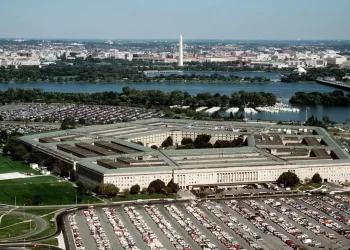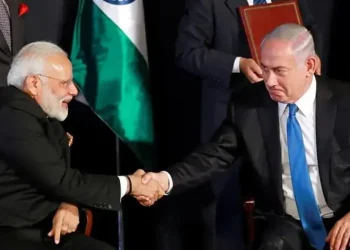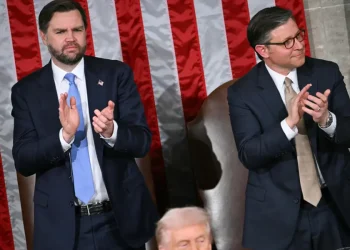SINGAPORE: US Defense Secretary Lloyd Austin tried to refocus attention on China’s threat in the Asia-Pacific on Saturday, seeking to alleviate concerns that conflicts in Ukraine and Gaza have distracted from America’s security commitments in the region.
Austin, who was speaking at the annual Shangri-La Dialogue security summit in Singapore, met his Chinese counterpart, Dong Jun, on Friday in a bid to cool friction over issues from Taiwan to China’s military activity in the South China Sea.
There has been increasing concern that Washington’s focus on helping Ukraine counter Russia’s invasion and support for Israel’s war in Gaza, while trying to ensure that the conflict does not spread, has taken away attention from the Indo-Pacific.
“Despite these historic clashes in Europe and the Middle East, the Indo-Pacific has remained our priority theatre of operations,” Austin said in his speech, which appeared aimed at underlining the administration’s legacy in the region as President Joe Biden’s first term in office nears its end.
China’s premier hails ‘new beginning’ with US-allied South Korea, Japan
Biden is running for re-election in November against former President Donald Trump.
“Let me be clear: The United States can be secure only if Asia is secure,” Austin said. “That’s why the United States has long maintained our presence in this region.”
Austin underscored the importance of alliances in the region.
“And … peaceful resolution of disputes through dialogue and not coercion or conflict. And certainly not through so-called punishment,” Austin said, taking a shot at China.
The speech took aim at Beijing’s actions in the region, including the South China Sea, without naming China for the most part.
In response, Chinese Lieutenant General Jing Jianfeng said the US Indo-Pacific strategy was intended “to create division, provoke confrontation and undermine stability”.
“It only serves the selfish geopolitical interests of the US and runs counter to the trend of history and the shared aspirations of regional countries for peace, development and win-win cooperation,” said Jing, deputy chief of the Joint Staff Department of China’s Central Military Commission.










 American Dollar Exchange Rate
American Dollar Exchange Rate